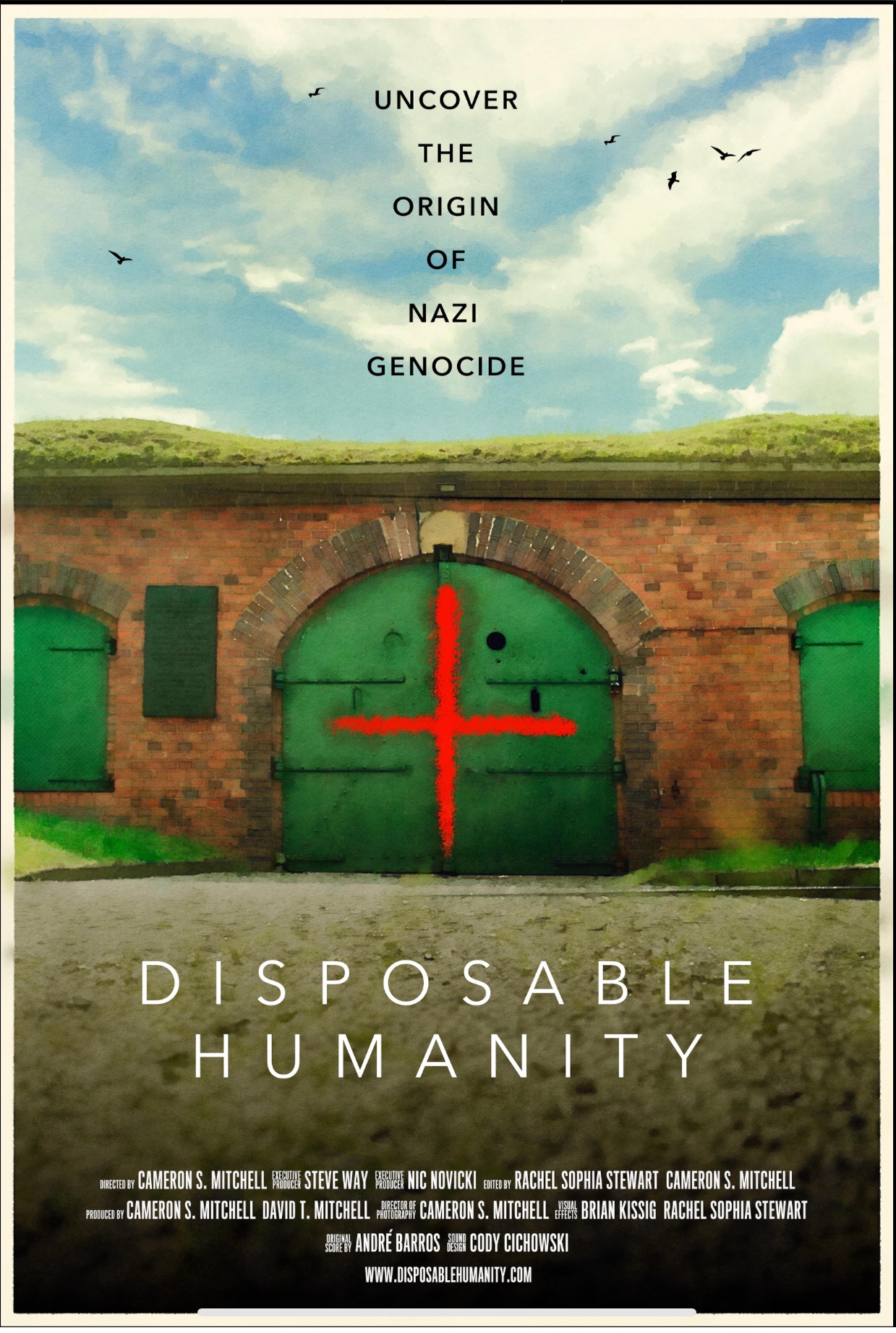Disposable Humanity screened in the UNSTOPPABLE section of SLAMDANCE 2025 Film Festival, where it won the Audience Award Winner and Jury Award Honorable Mention. This feature-length documentary was co-written and directed by Cameron Mitchell, alongside co-writer David T. Mitchell—a professor and esteemed author of six scholarly works on disability studies. David plays a central role in the film, which aims to draw a powerful comparison between the commemoration of the Auschwitz concentration camp and the lesser-known Aktion T4 program, a Nazi-era initiative that targeted people with disabilities.
From the very first scene—capturing a pivotal moment in their journey to making this documentary—I knew the filmmakers would offer an honest and unfiltered perspective. It was slightly blurry footage of a moment they could have easily staged and reshot for clarity—but instead, they chose authenticity over perfection.
That scene told me everything I needed to know about these filmmakers. They could have used something else but there was something honest and raw about that footage. Considering the high-quality production value of the remaining footage, I sensed that the opening footage was captured on the spot given that the filmmakers admit that they hadn’t originally set out to create a feature that made the aforementioned comparison. When I got to the title cards and an incredibly moving music cue, I knew I was watching a movie made by a very talented filmmaker with tremendous instincts.
The story that unfolds in Disposable Humanity is masterfully told—not only as a tribute to those impacted by the horrific practice of euthanizing individuals solely due to their disabilities but also as a powerful exposé of its inhumanity. The filmmakers did an amazing job at spotlighting the inhumanity of such a practice by sharing the research of descendants trying to find the truth of what happened to their loved ones that had been placed in the facility that one can now tour as part of the memorialization of this period in history.
Learning that patient files were marked blue minus= live; red plus= die was an intense detail to learn given how it symbolized the inhumanity of such a program. To narrow down someone’s fate to such a throw away thing like a plus or minus was just heart wrenching to me.
Everyone was complicit is a detail that really stuck with me as described by the filmmakers. It is noted that many of the professionals involved in this program continued to work in the medical field. Some making careers for themselves with their research.
Included in the documentary is footage of an artist who created a very moving (and coincidentally mobile) piece of art that commemorates the memory of those in the Aktion T4 program. Such an important and moving piece- it was very innovative and as touching to me as the Vietnam Veteran memorial wall.
I’m very grateful to have learned about this program through DISPOSABLE HUMANITY. Documentaries that shed light on a subject not widely taught in schools are important contributions to cinema and to historical records. Bravo to the Mitchell’s for recognizing the opportunity presented when visiting a more well-known concentration camp to shed light on a lesser known one. Please take the time to find and watch DISPOSABLE HUMANITY, it is incredibly well done and a must watch for anyone who is interested in honoring the memory of those lost to the atrocity of the Holocaust.
For more information about DISPOSABLE HUMANITY and for interest in signing up for the film to screen in your area see the website link below.*
Melody Lopez, Producer, Filmmaker Mixer Podcast (posted by Madelyn, Correspondent, Filmmaker Mixer)
*non-affiliate link shared strictly in support of the filmmakers.

